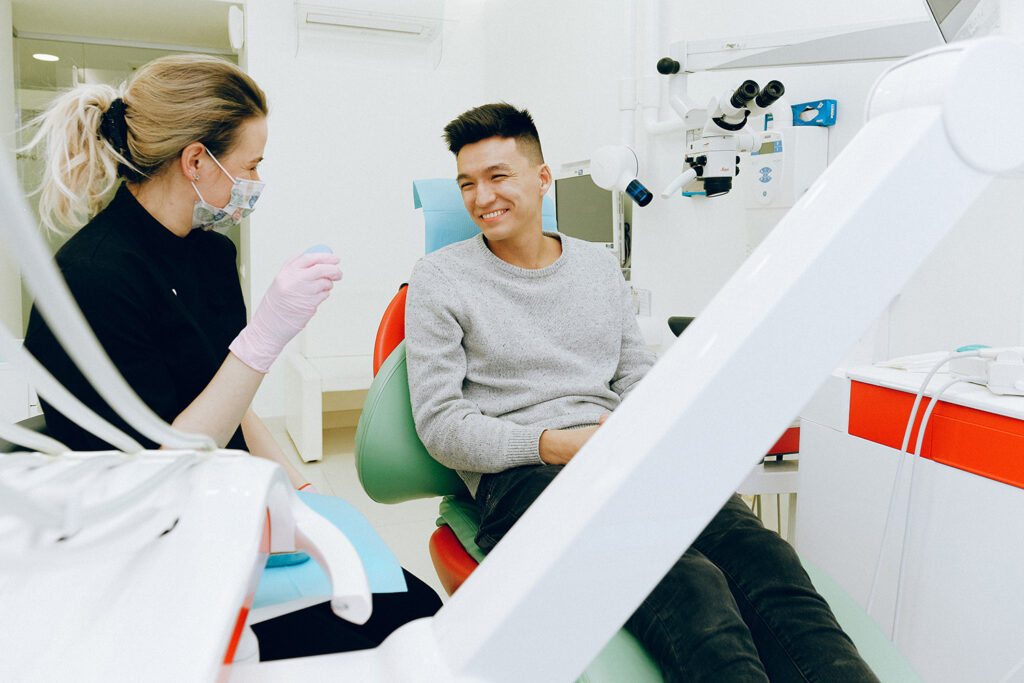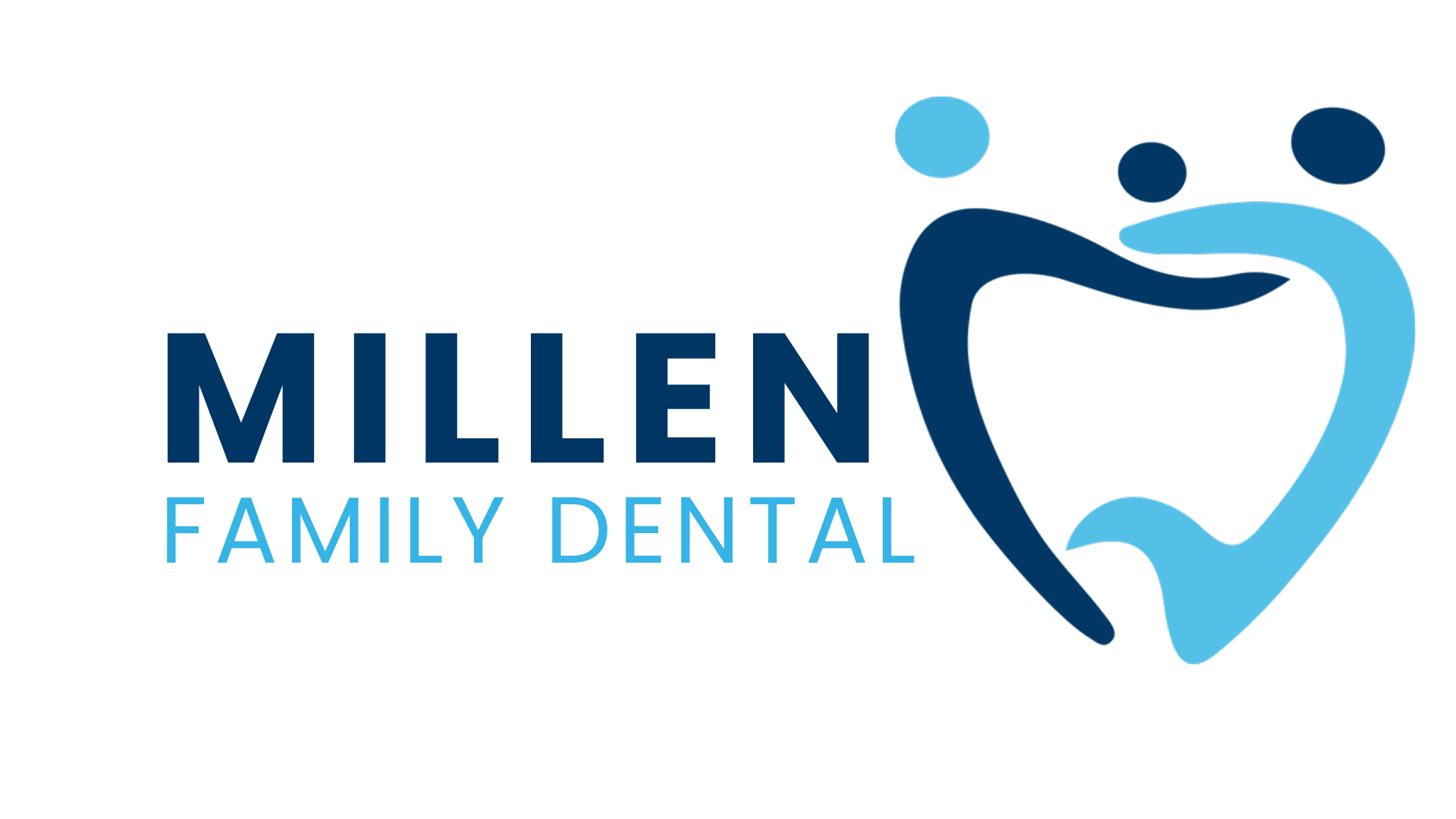
A Routine to Keep Healthy Teeth
While most people understand the importance of brushing their teeth, a strong oral care regimen involves much more. Incorporating comprehensive practices into your daily routine can prevent cavities, gum disease, bad breath, and even more severe health issues. Let’s examine the best ways to keep your teeth clean!
Understanding Oral Hygiene
Oral hygiene is more than just repetition; it’s a series of conscious daily choices aimed at keeping your mouth, teeth, and gums clean and healthy. These practices help prevent disease and maintain overall oral health. Good oral hygiene means regular brushing and flossing, using mouthwash, and making routine visits to the dentist. Each component plays a vital role in maintaining your overall oral health and ensuring that your smile remains bright and healthy.Step-by-Step Guide to a Daily Oral Hygiene Routine
Brushing Your Teeth
The number one oral hygiene practice every dentist will recommend is brushing your teeth, and for good reason. Thoroughly brushing twice a day is essential, but there are other things to keep in mind as well. Selecting the right toothbrush is the foundation of effective tooth and gum health. Whether you prefer a manual or electric toothbrush, the key is to choose one with soft bristles. Soft bristles are gentle on your gums and enamel but still effective at removing plaque. On top of this, toothpaste choice is just as important. Fluoride toothpaste is highly recommended because it strengthens enamel and prevents tooth decay. If you have specific dental needs, such as sensitivity or a desire for whitening, there are specialized toothpastes available to cater to these concerns.Flossing
Flossing is a crucial step because it removes plaque and food particles between your teeth and under the gumline—areas that a toothbrush can’t reach. Without regular flossing, these areas can develop plaque buildup, leading to cavities and gum disease. Waxed or unwaxed floss, dental tape, and floss picks are all great options depending on your specific needs. Waxed floss tends to glide more easily between tight teeth, while dental tape may be more comfortable for people with larger gaps between their teeth.Using Mouthwash
Mouthwash can be a valuable addition to your oral hygiene routine, at least when being used in moderation. It helps to reduce plaque, prevent cavities, and freshen your breath. Some therapeutic mouthwashes can also help with specific issues like gum disease or dry mouth. Use mouthwash once or twice daily, depending on your specific needs and the product’s instructions. There are two main types of mouthwash: therapeutic and cosmetic. Therapeutic mouthwashes contain active ingredients that help reduce plaque, gingivitis, bad breath, and tooth decay. Cosmetic mouthwashes temporarily control bad breath and leave your mouth with a pleasant taste.Additional Oral Hygiene Tips For Healthy Teeth
Importance of Cleaning the Tongue
The tongue can harbor bacteria that contribute to bad breath and overall oral health issues. Cleaning your tongue regularly can help reduce this bacterial load. You can clean your tongue using a toothbrush or a tongue scraper. After brushing your teeth, gently brush your tongue from back to front, or use a tongue scraper to remove the bacterial layer. This can be done once a day. For those who are more prone to bad breath, cleaning your tongue twice a day might be more beneficial. It’s a simple habit that can make a significant difference in your overall oral hygiene.Diet and Oral Health
Your diet significantly affects your oral health. Sugary and acidic foods and drinks can erode enamel and lead to cavities, while nutritious foods can strengthen teeth and gums. To promote oral strength and health, reduce your intake of sugary snacks, sodas, and acidic beverages. Incorporate foods rich in calcium and phosphates, like dairy products, leafy greens, and nuts, to help strengthen your teeth. Crunchy fruits and vegetables, such as apples and carrots, can help clean your teeth naturally and stimulate gum health. Additionally, foods high in fiber can promote saliva production, which is essential for neutralizing acids and protecting your teeth.Staying Hydrated
Staying hydrated is essential for maintaining saliva flow, which helps to neutralize acids produced by bacteria in the mouth and wash away food particles. Drink plenty of water throughout the day. Carry a water bottle with you and set reminders to drink water regularly, especially after meals and snacks. Water is not only beneficial for your overall health but also crucial for maintaining a moist environment in your mouth, which helps in washing away food particles and reducing the risk of tooth decay.Avoiding Harmful Habits
Certain habits can be detrimental to your oral health. Smoking, for example, is a leading cause of gum disease and oral cancer. It also contributes to bad breath and staining of teeth. Chewing on hard objects like ice or pens can cause your teeth to crack or chip. Similarly, using your teeth as tools to open packages or bottles can lead to dental injuries. Being mindful of these habits and making a conscious effort to avoid them can protect your teeth and gums from damage.Visiting the Dentist
Regular dental visits are crucial for detecting and preventing oral health issues early. Professional cleanings remove plaque and tartar buildup that cannot be addressed by regular brushing and flossing alone. Visit your dentist at least twice a year for check-ups and professional cleanings. Your dentist may recommend more frequent visits if you have specific oral health concerns. They can provide personalized advice and treatment plans based on your unique oral health needs. Regular visits allow your dentist to monitor your oral health and make necessary adjustments to your care routine. During these visits, your dentist can also screen for oral cancer, which is critical for early detection and successful treatment. They can also check for signs of systemic diseases that manifest in the mouth, such as diabetes or vitamin deficiencies. Building a good relationship with your dentist ensures that you receive the best possible care and can discuss any concerns or questions you may have about your oral health.Conclusion – A Routine to Keep Healthy Teeth
Maintaining a comprehensive daily oral hygiene routine is vital for a healthy smile and overall well-being. By following best practices for brushing, flossing, and using mouthwash, and by incorporating additional tips like cleaning your tongue, eating a tooth-friendly diet, staying hydrated, and avoiding harmful habits, you can significantly improve your oral health. Regular dental visits are also essential for professional cleanings and personalized advice. Incorporating these practices into your daily routine may seem overwhelming, but with consistency, they’ll become second nature. Your investment in good oral hygiene will pay off with a lifetime of healthy teeth and gums. Millen Family Dental is your home for advice on how to keep healthy teeth. Our dentists provide you with the excellent family dental care you deserve. Schedule an appointment today!Your Appointment
Convenient Appointments From 8am-5pm Monday through Thursday.
No matter what your schedule looks like, we want to provide you with the high-quality dentistry that you deserve. Call (478) 982-2789 to book your appointment today!

